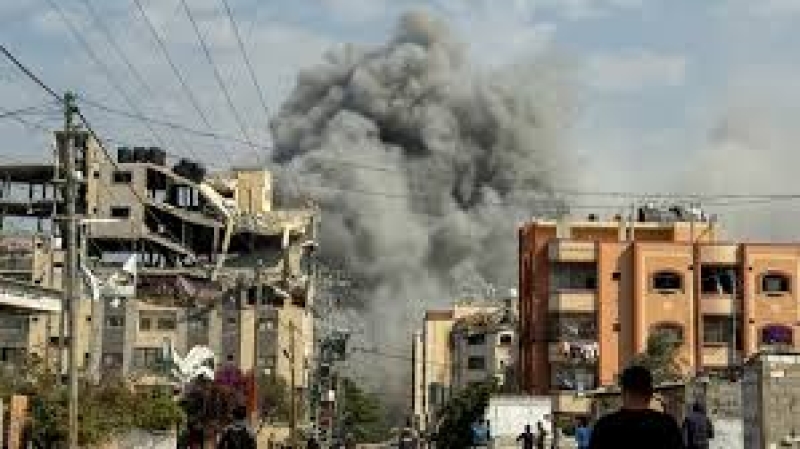- Nearly 13m displaced people at health risk for funding cuts |
- Sustained support must to prevent disaster for Rohingya refugees |
- UN rights chief condemns extrajudicial killings in Khartoum |
- BNP stance on reforms: Vested quarter spreads misinfo; Fakhrul |
- New Secy-Gen Shirley Botchwey pledges to advance Co’wealth values in divided world |
Airstrikes on Gaza Overnight Kill Over 50 Palestinians

Israeli airstrikes overnight have left at least 55 Palestinians dead across the Gaza Strip, according to hospital officials on Thursday. The air raids occurred just a day after senior Israeli officials announced plans to seize large portions of Gaza and establish a new security corridor cutting through the Palestinian territory.
Israel has vowed to intensify its nearly 18-month-long conflict with Hamas, demanding the militant group return the remaining hostages, disarm, and vacate Gaza. The Israeli government also imposed a month-long blockade on all imports of food, fuel, and humanitarian aid, exacerbating the dire shortage of essentials for civilians as supplies run low.
In Khan Younis, a southern Gaza city, local hospital officials reported receiving the bodies of 14 people—nine from the same family. Among the dead were five children and four women. Another 19 people, including five children aged between one and seven years old and a pregnant woman, were brought to the European Hospital near Khan Younis. In Gaza City, 21 bodies, including those of seven children, were taken to the Ahli Hospital.
On Wednesday, Prime Minister Benjamin Netanyahu unveiled a new plan to create a "Morag Corridor," a security axis running through Gaza. The corridor aims to cut off the southern city of Rafah from the rest of Gaza, further isolating key Palestinian areas and increasing pressure on Hamas. Netanyahu likened the new corridor to the "Philadelphi Corridor," which extends along the Gaza-Egypt border and has been under Israeli control since May 2024.
Israel also reasserted control over the Netzarim Corridor, a critical passage separating northern Gaza, including Gaza City, from the rest of the strip. These military strategies aim to intensify pressure on Hamas, with Netanyahu declaring, "We are cutting up the strip and increasing the pressure step by step, so that they will give us our hostages."
The Western-backed Palestinian Authority, which opposes Hamas, condemned Israel’s planned corridor, urging Hamas to relinquish power in Gaza. This came after Israel's Defense Minister Israel Katz stated that Israel would seize large swathes of Gaza to add to its security zones and called on residents to "expel Hamas and return all the hostages."
Hamas, however, has demanded the release of Palestinian prisoners, a lasting ceasefire, and the withdrawal of Israeli forces from Gaza in exchange for the remaining 59 hostages. The militant group rejected Israeli demands to disarm or vacate the region.
Netanyahu's recent comments about maintaining security control over Gaza after the war, along with a plan to "resettle" much of the population, have sparked further controversy. The proposal, which envisions "voluntary emigration," has been strongly rejected by Palestinians, who view it as a form of expulsion from their land. Human rights experts have warned that implementing such a plan could violate international law.
The war, ignited by Hamas-led attacks on Israel on October 7, 2023, killed approximately 1,200 people in Israel and led to the kidnapping of 251 hostages. While some hostages have been freed through ceasefire deals, many remain in captivity. Israel’s offensive has claimed the lives of over 50,000 Palestinians, according to Gaza’s Health Ministry, though it has not specified the number of civilian casualties. Israel claims to have killed around 20,000 Hamas militants, but without providing proof.
As the war continues, large parts of Gaza remain in ruins, with displacement affecting nearly 90% of the population. Palestinians are enduring severe hardships, marked by dwindling food supplies and the ongoing violence.

